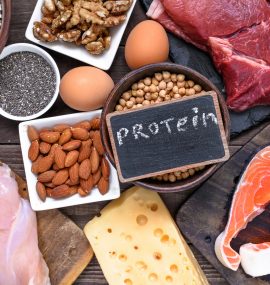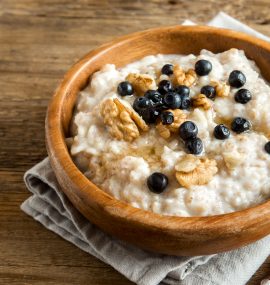The participants ate one of two meal types. (1) 90 grams of high-quality protein per day for seven days in equal amounts at daily meals (about 30 grams each). (2) 90 grams of high-quality protein per day for seven days with most of the protein at dinner (63 grams), 11 grams at breakfast, and 16 grams at lunch. Over a 24-hour period, participants who ate equal amounts of protein at each meal synthesized about 30 percent more muscle protein compared participants who ate most of their protein at dinner. Thus, some researchers now recommend eating 25 – 30 grams of protein at each daily meal to promote maximum muscle protein synthesis.
more
Do Seniors Need More Protein to Avoid Sarcopenia?






